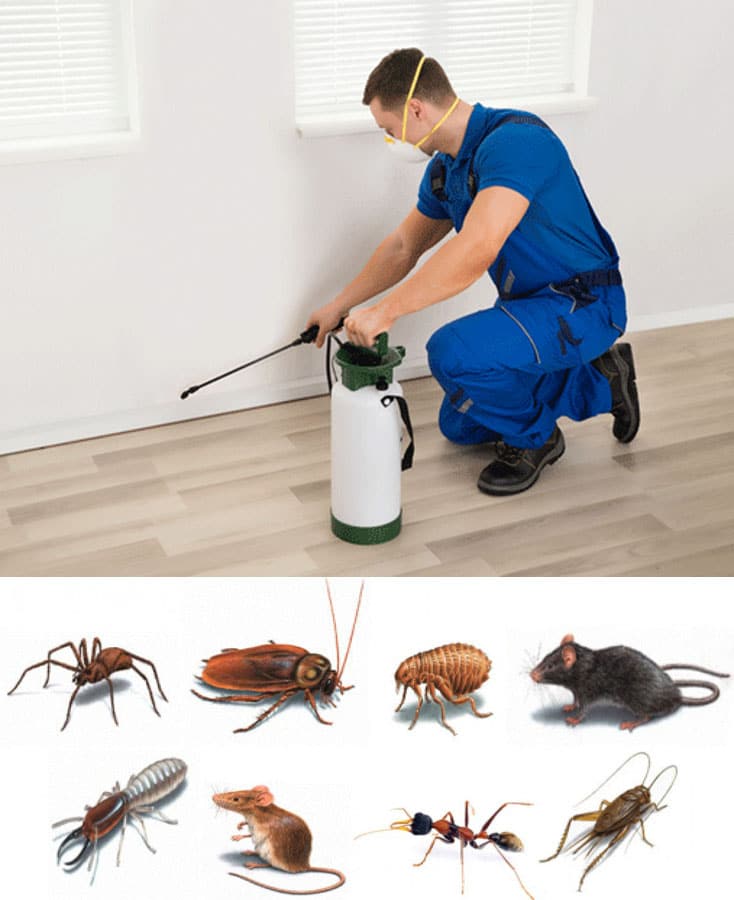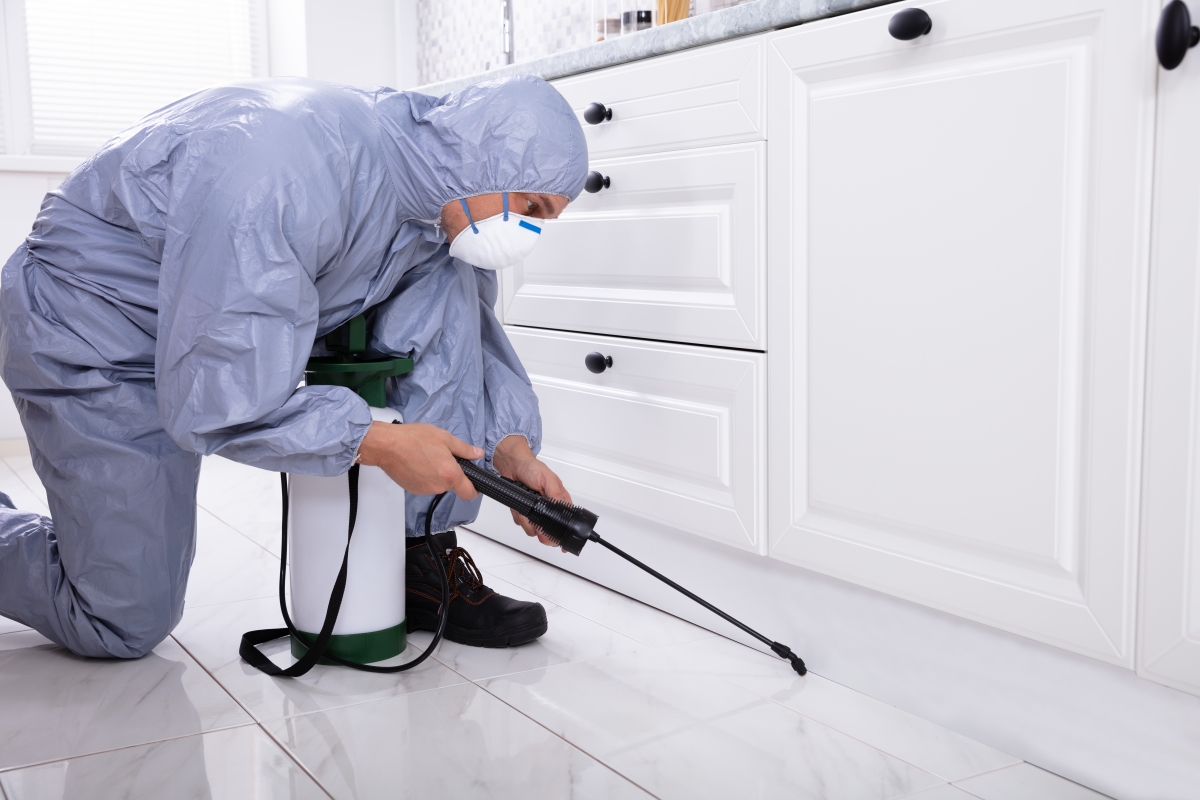Safe and Dependable Bug Control for Lasting Defense
Reliable insect administration needs a multifaceted strategy that stabilizes environmental integrity with the requirement for reliable bug suppression. The subtleties of these techniques might not be instantly clear, prompting a more detailed examination of the techniques that can lead to sustainable bug control outcomes.
Comprehending Insect Control Approaches
Insect control incorporates a variety of approaches intended at managing and eradicating undesirable bugs and rats that can intimidate both health and wellness and residential property. Recognizing these techniques is important for reliable bug management.
The primary categories of parasite control techniques include mechanical, organic, and chemical techniques. Mechanical methods include physical obstacles and traps to stop insect access and capture undesirable varieties. For instance, utilizing displays on home windows or employing sticky traps can significantly decrease bug populaces without presenting hazardous materials.

Chemical pest control is typically the most acknowledged approach, using chemicals to remove pests. These chemicals can be reliable yet should be utilized with care to avoid unfavorable results on non-target types and the environment.
Advantages of Eco-Friendly Solutions
Exactly how can eco-friendly remedies change insect control methods? The adoption of green bug control techniques offers countless benefits, significantly enhancing the efficiency and safety of parasite administration (exterminator coquitlam). Firstly, these remedies utilize all-natural components, decreasing the dependence on dangerous chemicals that can posture risks to human wellness and the atmosphere. This change not only secures animals and families however also lessens the possibility for soil and water contamination.

One more advantage is the favorable impact on local biodiversity. Environment-friendly services are designed to target particular bugs while maintaining useful pests and wildlife, advertising a balanced ecological community. This approach lines up with the growing consumer need for lasting methods, enhancing the credibility of bug control companies.
Integrated Pest Administration Methods
The execution of environmentally friendly services normally results in the adoption of Integrated Parasite Administration (IPM) techniques, which additionally boost bug control effectiveness. IPM is a holistic strategy that incorporates several strategies to manage parasite populations while minimizing ecological influence. This technique emphasizes the usage of biological, social, mechanical, and chemical controls, making sure a balanced and lasting technique of pest administration.
One fundamental facet of IPM is the complete analysis of parasite task and ecological conditions. By checking pest populaces and determining their life process, professionals can execute targeted interventions that interfere with the bug's habitat or lifecycle, reducing reliance on chemical pesticides. Furthermore, social techniques such as crop rotation and environment manipulation can dramatically diminish bug establishment and reproduction.
One more crucial part is using biological control representatives, such as advantageous bugs or microbes, which can naturally suppress bug populaces. When chemical applications are essential, IPM prioritizes the usage of low-risk chemicals and uses them selectively, lessening direct exposure to non-target microorganisms and people.
Incorporating IPM techniques not only enhances bug control performance but additionally promotes a safer community, lining up with the expanding need for lasting techniques in insect administration.
Safe Practices for House Owners
Recognizing the relevance of safe practices in pest control can encourage homeowners to properly handle bug problems while safeguarding their health and wellness and the environment. Executing preventive measures and safe approaches is crucial in minimizing direct exposure to unsafe chemicals.
Homeowners need to initially assess their setting for conditions that attract parasites, such as standing mess, water, and food waste. Frequently cleaning and sealing entry factors can deter parasites from invading the home. Making use of natural deterrents, such as essential oils or diatomaceous earth, can give efficient choices to chemical pesticides.
When chemical treatments are necessary, house owners should go with products that are especially labeled as check out here risk-free for residential usage. It is necessary to adhere to application guidelines thoroughly to stay clear of too much exposure. Moreover, utilizing targeted therapies in areas where pests are determined, as opposed to blanket splashing, can significantly reduce chemical use.
Last but not least, keeping open interaction with pest control professionals is vital. House owners must ask about the safety of items utilized and demand environmentally friendly alternatives whenever possible. By embracing these risk-free practices, home owners can develop a healthier living atmosphere while successfully managing insect problems.

Tips for Long-Term Defense
Establishing a pest monitoring strategy that stresses lasting protection can considerably boost a pest control the efficiency of the safe techniques previously talked about. To attain this, homeowners need to implement regular evaluations of their residential property, concentrating on hidden areas such as attics, basements, and crawl areas. Early discovery of pest activity is crucial in avoiding infestations from taking hold.
Additionally, keeping a tidy environment is important. This consists of appropriate food storage space, promptly cleaning spills, and regularly throwing away waste. These practices lower attractants that attract insects into the home. Additionally, securing entry points, such as cracks around home windows and doors, can successfully block possible bug accessibility.
Landscape design must additionally be considered; maintaining plants cut and maintaining a range between plants and the home minimizes hiding places for bugs. Utilizing natural deterrents, such as important oils or diatomaceous earth, can additionally prevent you could try these out infestations without resorting to severe chemicals.
Last but not least, collaborating with a professional parasite control solution for periodic assessments can provide an added layer of safety. These specialists can supply tailored recommendations and progressed therapies, guaranteeing that your home stays shielded versus insects in the long term.
Verdict
Finally, reputable and secure bug control needs a diverse method that stresses eco-friendly methods and integrated bug administration. By carrying out all-natural deterrents, performing regular examinations, and maintaining proper cleanliness, home owners can considerably lower insect populations while safeguarding advantageous bugs and the atmosphere. Collaboration with expert parasite control solutions improves the effectiveness of these methods, guaranteeing tailored options that give long lasting security and satisfaction versus future invasions.
Efficient insect management calls for a complex technique that stabilizes ecological stability with the need for effective parasite reductions. The adoption of green pest control methods uses various advantages, significantly enhancing the efficiency and safety and security of bug monitoring.The execution of environmentally friendly services normally leads to the fostering of Integrated Parasite Management (IPM) approaches, which further improve pest control effectiveness. exterminator coquitlam. By monitoring parasite populaces and identifying their life cycles, experts can apply targeted interventions that interfere with the parasite's environment or lifecycle, lowering reliance on chemical pesticides.In verdict, safe and trustworthy insect control requires a multifaceted method that stresses environment-friendly approaches and incorporated pest administration